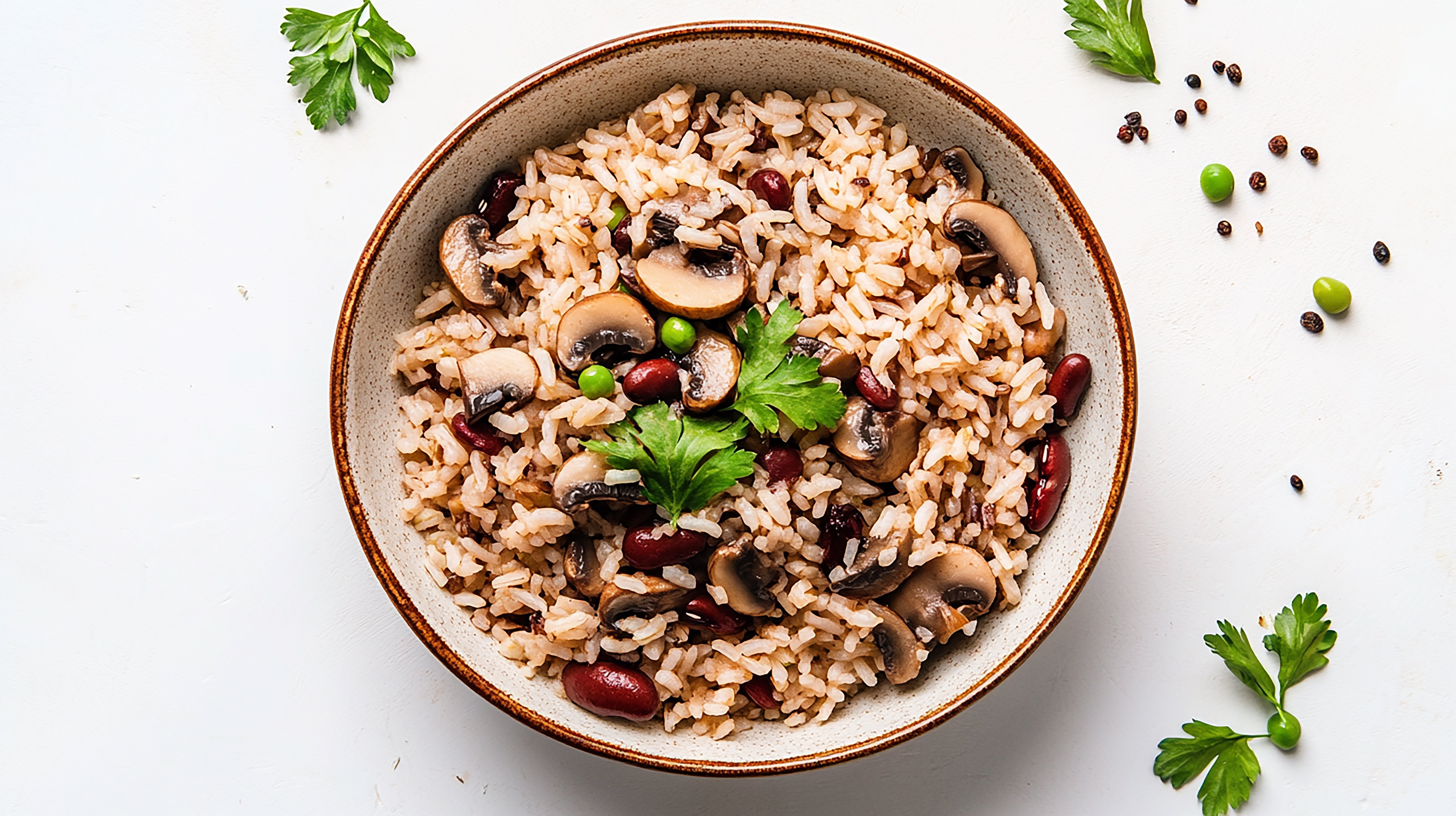Mushrooms, Beans & Rice: Plant-Based Alternatives to Expensive Red Meat

The Sustainable Food Barometer confirms something many Canadians have been thinking for years: we need to rethink our sustainable dining habits, particularly regarding red meat consumption. By reducing portion sizes and frequency of our red meat consumption while incorporating alternatives like rice, beans, and mushrooms, Canadians can enjoy significant benefits – both environmentally and financially – while improving their overall health.
Analyzing the Cost
According to Canada's Food Price Report 2020 - AgriFood Analytics Lab - Dalhousie University, the average cost of ground beef was approximately 11.96$ per kilogram. In contrast, dried beans can be purchased for as little as 4.00$ per kilogram. By swapping a portion of red meat with these plant-based alternatives, Canadians can significantly lower their grocery bill. For example, if a household typically consumes 1 kg of ground beef per meal, replacing half with beans and rice could save around 6.00$ per meal, which adds up over time.
Comparing Carbon Footprint
While the number one priority for Canadian eating habits has been identified as cost, this shift to plant-based options also has a profound impact on carbon footprint. The environmental impact of beef production is substantial, with studies indicating that it generates approximately 27 kg of CO2 emissions per kg of meat. In comparison, beans and rice produce around 0.3 kg and 1.8 kg of CO2 per kg, respectively (Environmental Impacts of Food Production - Our World in Data). By reducing red meat consumption and increasing the intake of beans and rice, Canadians can contribute to a reduction in greenhouse gas emissions, fostering a more sustainable food system.
What About Taste?
From a taste perspective, beans, rice, and mushrooms are versatile ingredients that can add depth and flavor to dishes. Mushrooms have a savory umami quality that mimics the taste of red meat, making them an excellent substitute in recipes such as stir-fries, burgers, and sauces. Beans are not only a great source of protein, but also come in various types (black beans, chickpeas, lentils and more) that can be seasoned to create satisfying meals that don’t break the bank. Additionally, rice serves as a neutral base, making it an ideal accompaniment to these ingredients. Incorporating these alternatives into our diets not only improves taste and nutrition but also encourages culinary creativity! Simple swaps like adding beans to chili or mushrooms to pasta dishes can enhance flavors while reducing costs and environmental impact.
Take Care of the Environment... and Your Wallet!
By embracing a diet that prioritizes portion control of red meat and emphasizes plant-based options, Canadians can enjoy the benefits of a healthier lifestyle and contribute to a more sustainable future. The transition to a plant-based diet is not just a trend: it is a necessary step toward reducing our carbon footprint and ensuring food security for generations to come. As we make these changes, we can take pride in knowing that we are not only taking care of our health and the planet – and at a time where groceries prices have the biggest impact on the food choices made by Canadians across the country – our wallets too!